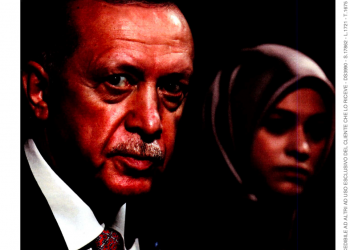 NdG pubblica una riflessione dello storico e politologo dell’Università TOBB di Ankara, sulle elezioni in Georgia.
NdG pubblica una riflessione dello storico e politologo dell’Università TOBB di Ankara, sulle elezioni in Georgia.
ELECTIONS IN GEORGIA: MAIN THING IS THE WILL OF THE PEOPLE
Tblisi – Turkish-Georgian relations, free from political problems, develop in line with the principles of equality and non-interference in internal affairs. Turkey, immediately after the collapse of the Soviet Union, has recognized
Georgia’s independence on 16 December 1991. The Protocol on Establishment of Diplomatic Relations between the two countries was signed on 21 May 1992.
As a result of their geographical affinity, Turkish and Georgian nations also enjoy close relations. The bilateral economic and trade relations also have a positive progress in parallel to political ties. Turkey and Georgia do not only cooperate at the bilateral level, but also carry out regional projects like the Baku-Tbilisi-Ceyhan Oil Pipeline, the Baku-Tbilisi-Erzurum Natural Gas Pipeline and the Baku-Tbilisi-Kars Railway (to be concluded in 2012).
That’s why, one of the key issues under discussion in Turkey’s neighborhood is the upcoming parliamentary elections in Georgia, which are scheduled for Oct. 1.
Parliamentary elections in Georgia are important for several reasons. The results of these elections are particularly important because Georgia is entering a period of transition.
Firstly, the elections seem to pose a choice between turning back and becoming pro-Russian, or maintaining the pro-Western course – i.e., continuing with the current government’s foreign policy, which prioritizes Euro-Atlantic
integration.
Secondly, in 2013, when Mikh?il Saakashvili completes his last presidential term, a new national constitution that was adopted in 2010 will immediately go into effect, transferring most of the executive powers to a newly powerful prime minister, who will form the government. With the entry into force of the amendments president’s power will be weakened, and on the contrary, the authority of the Prime Minister, elected by parliament, will increase, thus, the prime minister will play a key role in governing the country. Thus, depending on the results of the election on October 1 presidential elections next year may be more or less important.
Another reason is the fact that the struggle for power between the political forces in Georgia for the first time since 2003 has significantly transformed, for the first time there have been changes in the demands of the population, and the different political forces coming together in a different coalition, entered a new phase of political struggle.
And, as it often happens in politics, those who came to power eight years ago, with a huge public support, have disappointed the majority of citizens.
What Georgians are anxious about is that despite their democratic uprising, the mere fact that the current government has been in power for nine years means that there is a risk of political regression, i.e., a move away from democratization.
And finally, in Georgia, during the election campaign between the ruling and opposition forces the social and economic problems came to the fore. The authorities have begun to respond adequately to the social and economic problems that have been raised in opposition platforms a year ago.
Despite the fact that in comparison with neighboring post-Soviet countries, Georgia has made tangible progress in fighting corruption and improving public services, with the approach of parliamentary elections in 2012 the concern of specialists on human rights is growing. The subject focus of analysts are increasingly becoming the freedom of expression, workers’ rights, an independent judiciary, the use of state resources by the authorities to increase the number of supporters and opponents of political violence.
Along with the problems in the development of democracy in Georgia, you should pay attention also to the risks and potential outcomes that can arise when conducting fair elections and human rights.
Therefore, you should pay careful attention to the words of President of parliamentary assembly Organization for Security and Co-operation in Europe’s (OSCE) Riccardo Migliori. R.Migliori describing the pre-election environment after a visit to Georgia on Aug. 22 said that there is a small element of Leninism in this electoral campaign. “Leninism is not to present programs, but rather trying to destroy the enemies.”
After a long-term election observation mission from the OSCE Office for Democratic Institutions and Human Rights Campaign (ODIHR) represented a report, which says that the political environment ahead of the election “is polarized” and characterized by “frequent public exchanges of accusations and allegations among political adversaries.” Transparency International Georgia has determined several worrying trends in the pre-election environment in Georgia: harassment of opposition supporters, the misuse of legal resources for political and electoral purposes, disproportional sanctions imposed on opposition parties for violations of the law, and the obstruction of party activities.
In addition, most recently in Gldani prison the facts of inhuman treatment of prisoners were disclosed. MIA laid out on its website some of the videos, with the caveat that it is the minimum part of the materials available to the investigation, since the other shots are not allowed for public viewing. But in the evening TV “Maestro” and “Channel Nine” showed in its broadcast shocking footage of brutal beatings and rape in particular perverted form. There were protests demanding the protection of human rights, punish and resignation In Tbilisi and other Georgian cities, as Minister of Corrections Khatuna Kalmakhelidze which eventually resigned. Georgia State will have to try hard to regain that reputation and, most importantly, the trust of citizens in this regard.
Last year, Georgia’s leadership and society progress has been achieved in terms of protection of human rights: the institution of the jury, a law that protects the rights of religious minorities, etc.
It should be added that the additional protection is needed in basic human rights, such as freedom of the press and freedom of meetings. Georgia will also have work in the field of family violence issues.
Georgian political parties and citizens should assist the Government in building a modern democratic society. After all, one only the government is not able to build a democracy with only its own forces. The further democratization of the Georgian state depends on the level of political consciousness of the society and the political elite. Much in the development of a democratic society depends on the consensus of various political forces.
It can be foreseen that the results of the parliamentary elections will not impact negatively on the relationship between Turkey and Georgia. Democratic development of Georgia and its integration with the West is a priority for Turkey. Turkey has supported and will support Georgia in its economic and social human development. It’s safe to say that Turkey does not plan to support any particular candidate or political party in the upcoming parliamentary and presidential elections in Georgia. For Turkey, it is strategically important to continue to develop partnerships with the political power that comes to power through democratic means for the will of the people.
After the election, especially with the entry into force of the Constitutional changes adopted in 2010, when there are increased power and functionality of the parliament, the political system will create more opportunities for the resolution of socio-economic and cultural problems faced by the citizens of Georgia.
But it would be naive to expect a sudden miracle that after the parliamentary elections, all change, and all problems will be solved overnight. Most importantly, people need to know their rights and demand them from their representatives. Otherwise, the problem will be nominated on the agenda of some of the election to the next.
Therefore, it is essential that the public actively participate in the elections; parliament should be presented in different population groups and different nationalities living in the country.
In this regard, a good incentive to solve the country’s problems is the integration into the political life of society of well educated, informed on their rights and responsibilities young generation.
Togrul Ismayil
Asst. Prof.
TOBB Economics & Technology University
Faculty of Economics and Administrative Sciences
Department of International Relations

















